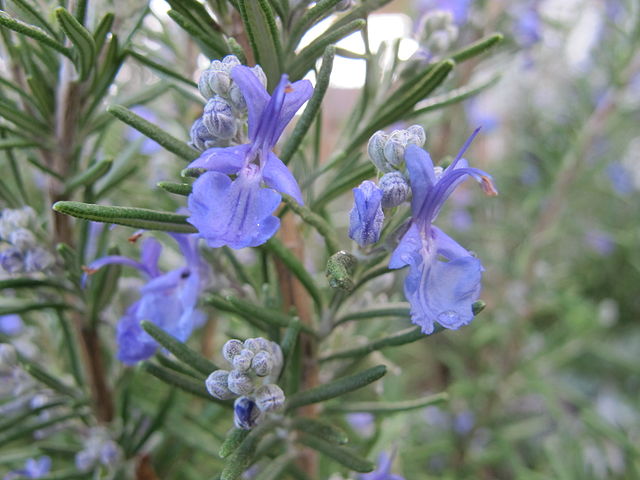Rosemary (Rosmarinus officinalis) is an aromatic herb with a long and storied history, rich in symbolism and cultural significance from ancient Greece to modern traditions. Here’s an overview of the history and symbolism of rosemary:
1. Ancient Greece and Rome:
- The ancient Greeks believed that rosemary was a symbol of memory and remembrance. They would often wear rosemary garlands or wreaths during ceremonies and festivals.
- In ancient Rome, rosemary was associated with love and loyalty. It was used in wedding ceremonies as a symbol of fidelity and happiness. Brides would wear rosemary wreaths, and couples would plant rosemary bushes to commemorate their union.

2. Medieval Europe:
- In medieval Europe, rosemary was considered a symbol of love and fidelity. It was often used in bridal bouquets, and guests at weddings would wear sprigs of rosemary to symbolize love and loyalty.
- Rosemary was also associated with protection and was believed to ward off evil spirits and protect against the plague.
3. Religious Symbolism:
- Rosemary has religious significance in Christianity. It is often associated with the Virgin Mary and is sometimes called the “Rose of Mary.” Legend has it that the Virgin Mary spread her blue cloak over a white-blossomed rosemary bush, turning the flowers blue.
- In Christian symbolism, rosemary has also been called the “Holy Herb” and is used in religious ceremonies, particularly during Christmas and Easter.
4. Culinary and Medicinal Uses:
- Beyond its symbolism, rosemary has been widely used in cooking and traditional medicine for centuries. It is known for its aromatic and flavorful leaves, which are used to season various dishes, particularly in Mediterranean cuisine.
- Rosemary is also known for its potential health benefits, including its role as a natural remedy for various ailments, such as digestive issues and headaches.
5. Modern Uses:
- Today, rosemary is still widely used in culinary applications, as well as in perfumery, cosmetics, and aromatherapy.
- It remains a popular herb in gardens and is appreciated for its fragrant and evergreen nature, making it a favorite among gardeners and landscapers.
6. Additional Symbolism:
- Beyond its historical symbolism, rosemary is often associated with traits such as loyalty, love, remembrance, and protection.
- It is sometimes used as a gift or decoration for special occasions, including weddings, funerals, and holidays.
In summary, rosemary has a rich history of symbolism, dating back to ancient Greece and Rome. It has been associated with memory, love, loyalty, protection, and religious significance. Today, rosemary continues to be appreciated for its culinary, medicinal, and aromatic qualities, and its symbolism endures in various cultural and traditional contexts.












